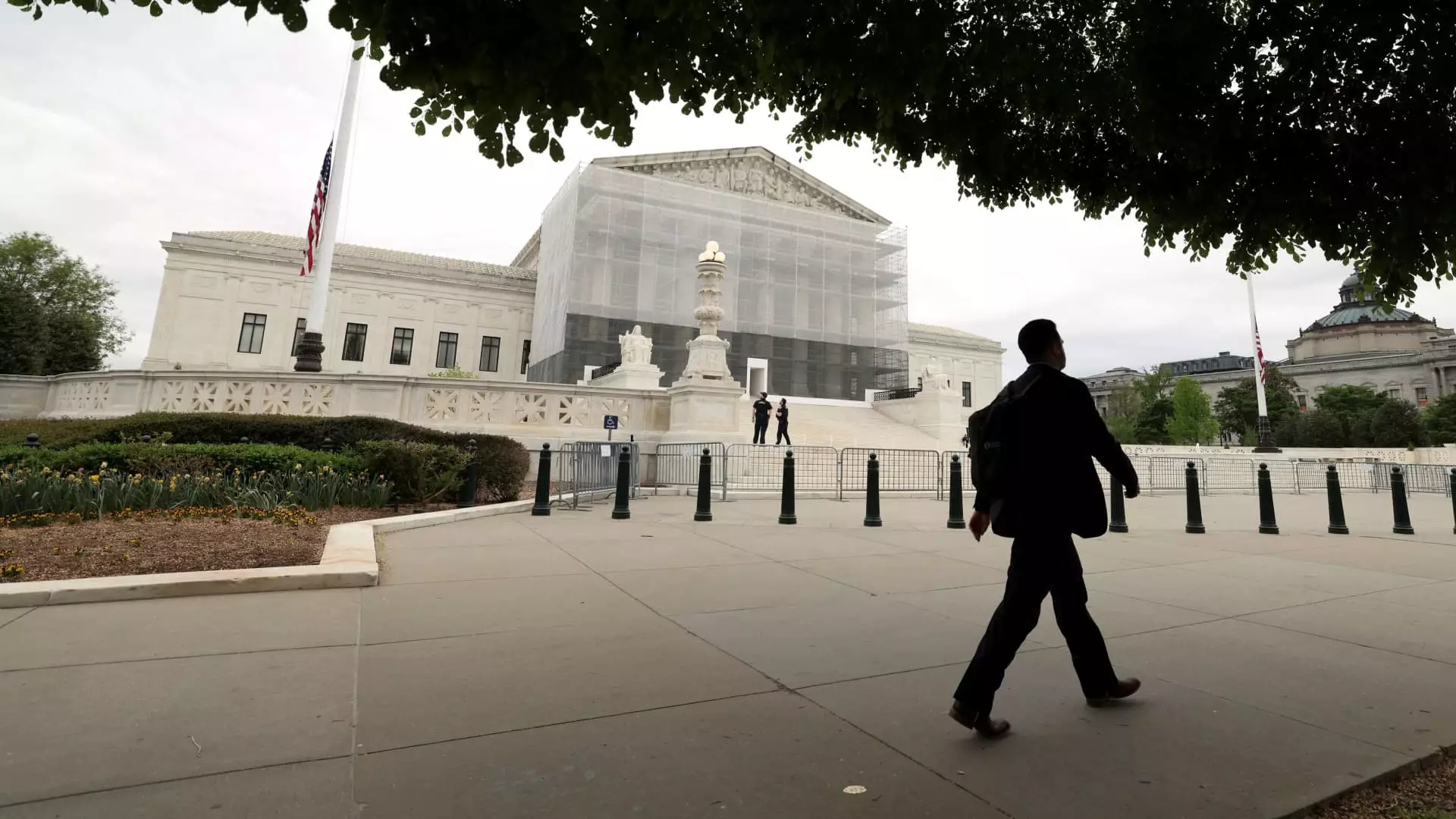In a significant ruling that has captured national attention, the Supreme Court has demonstrated a much-needed commitment to due process and the rights of foreign nationals. The recent decision to halt deportations of Venezuelan detainees under the Alien Enemies Act signifies a pivotal moment in legal history, where the balance between national security and human rights is being rigorously examined. The court’s 7-2 ruling emphasized the importance of providing these individuals with adequate notice and resources to challenge their deportations effectively, recognizing a troubling trend of dismissing scrupulous legal processes in favor of swift governmental action.
The case at hand revolves around allegations made by the Trump administration regarding Venezuelan nationals suspected of being affiliated with the Tren de Aragua gang. Notably, these claims have been met with skepticism, particularly as the court highlighted the administration’s failure to provide sufficient evidence or time for the detainees to assert their rights. The ruling not only pauses the immediate threat of removal but also invites a broader conversation about the implications of the Alien Enemies Act, which has historically been leveraged to justify hasty deportations under the guise of national security.
A Reminder of Our Constitutional Foundations
This ruling is a reminder that the American legal framework was founded on principles of justice and fairness. The court underscored that approximately 24 hours’ notice prior to removal—and essentially no information regarding how to contest this removal—is fundamentally inadequate. The justices insisted that due process must remain a cornerstone of our legal proceedings, particularly for individuals whose lives are deeply intertwined with complex immigration issues.
Justice Samuel Alito and Clarence Thomas’s dissenting opinions are indicative of the internal debate within the court about the nature of national security. They argue that the urgency of the situation does not merit a pause in removal efforts. However, their perspectives delve into the heart of a worrying phenomenon: the increasing normalization of prioritizing swift enforcement over individual rights. Such attitudes risk creating a legal environment where the power dynamics are inherently skewed against already vulnerable populations.
The Meaning of Removal Under Fire
The decision is not merely a temporary reprieve. It speaks volumes about a growing awareness and reluctance to treat deportations as perfunctory processes devoid of scrutiny. The ramifications of hastily labeling individuals as threats can irreparably harm communities and families. Additionally, the court’s acknowledgment of the “particularly weighty” interests of the detainees emphasizes the need to ensure that voices of the marginalized are heard within judicial proceedings.
While the Trump administration painted these Venezuelan nationals as hostile agents, obviously invoking fear to galvanize public opinion, this ruling reflects a necessary resistance against overreach. It compels us to scrutinize the broader implications of such categorization. Is it not the very essence of our democracy that we question authority, especially when it threatens the fabric of human rights? The court’s decision offers hope that the judiciary can act as a guardian against governmental overreach, reminding us that people should never be stripped of their rights based solely on unfounded assumptions and aggressive rhetoric.
A Cautionary Tale for Future Governance
The implications of this ruling extend beyond the immediate case. It serves as a cautionary tale for all future administrations contemplating similar applications of power. National security concerns must be balanced with the foundational elements of due process and dignity. The hesitance of the court to endorse the hasty removals under the Alien Enemies Act sets a crucial precedent: that judicial oversight is essential in holding the government accountable and ensuring that immigration laws are not weaponized against vulnerable populations.
As we reflect on this ruling, it raises the question of how we, as a society, define justice and the lengths we are willing to go to protect our most basic values. Our legal structures must act not only as enforcers of the law but also as stewards of human rights. Perhaps, in doing so, we can aspire to be a nation not just of laws, but of fairness and compassion—a place where every individual’s rights are championed, no matter their background. The Supreme Court’s ruling may well be a turning point in this journey, pushing society to re-evaluate its core values in an ever-complicated political landscape.


Leave a Reply